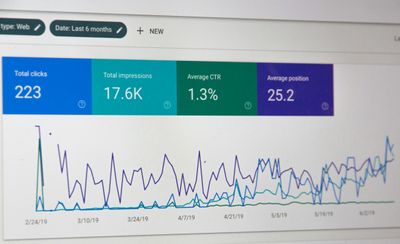Almost everyone has heard of trusts in some way or another. However, they might not be exactly sure what a trust is or how it can help them with their finances. A trust is an arrangement that gives you control over your assets, while still protecting them from creditors and others who may try to take your money away from you.
This article will explain the key benefits of having a family trust so you can learn if this type of financial planning is right for you.
What is a family trust?
A family trust is a legal entity that holds assets for the benefit of someone else. A living person can create it, and it can take effect at the time of that person's death. It's kind of like a savings account for your loved ones, with more flexibility than a regular savings account.
A family trust can be created by you during your lifetime (called an inter vivos trust), or after your death (a testamentary trust). The difference between these two types is whether they're set up while you’re still alive or not; they both have similar characteristics and benefits. For example, if you want to help manage the financial affairs of another person by giving them ownership over their money while they're still alive, then an inter vivos trust might be useful for this purpose. On the other hand, if there are specific things that need to happen after your death—for example, making sure certain items go to certain people—then it might make sense to create a testamentary family trust instead.
Click here for more information on what a family trust is.
Protects assets from creditors.
A family trust helps to protect your assets from creditors by creating a wall between yourself and the trust's assets. For example, if you own a house that you keep in your name only (as opposed to putting it into a family trust), then creditors—such as credit cards or loans—can come after the house if they have reason to believe that it belongs solely to you.
If this same house was placed into a family trust along with other assets like cash or stocks, then those creditors would not be able to get at those things either because they don't belong directly to anyone individually; instead, they are held collectively by all members within each beneficiary group.
Limits the amount of taxes paid on family assets.
A trust can be used to reduce taxes in several ways. First, it can help limit the amount of inheritance tax that is paid when someone dies. Inheritance tax only applies to assets that are passed directly from one person to another; if a trust owns something and then passes it on, no inheritance tax will be charged.
Second, trusts may provide additional benefits for income taxes and capital gains taxes. For example, if you own stock in a company and your son owns stock in the same company, but in different amounts (such as owning 100 shares while your son owns 1000), then there would normally be capital gains taxes when you sell yours and give him his share (assuming he doesn’t pay full market value).
Trusts allow this type of transaction without incurring these kinds of potential taxes on any transferable assets like stocks or real estate holdings since these types cannot be placed into them directly by law anyway due to restrictions on what qualifies as having been owned “for more than 6 months” which would otherwise trigger capital gains/losses upon sale depending on how long they have been held prior.
Can protect the home from divorce and other marital claims.
A family trust can protect the family home from divorce and other marital claims, including claims by creditors or beneficiaries' creditors. It can also be used to protect the family home from incompetent relatives (children or grandchildren), responsible adults who may be unable to manage their finances, and irresponsible children who may not take care of your property as you would wish.
Allows parents to monitor how their sons and daughters spend their inheritances.
As you might have guessed, the Family Trust can also be used to monitor how your children or grandchildren spend their inheritances. This is a great way for parents and grandparents to ensure that their money is not squandered by heirs who are unwise with their finances.
The Family Trust can also be used as a tool for deciding how best to plan for future expenses. For example, if one of your children has an expensive wedding coming up in five years, you can put aside money now to help pay for it when the time comes. If another child needs braces at age 12 so as not to have crooked teeth when they're older, you could set aside some money every month until that bill comes due (or just pay it out of pocket). You could even use it as an investment vehicle: since trust funds don't count as part of someone's gross income on taxes—meaning they won't affect eligibility for financial aid later on—you could save extra cash in the trust fund each year without having the government take its share first!
Another benefit of using a family trust is its flexibility; because trusts aren't governed by any one law or court system (unlike wills), there are fewer rules about what type of assets can go into them or how long recipients must wait before receiving distributions from them (generally three years).
The downsides:
A family trust can be a great way to protect your assets and provide for your loved ones. But it's not for everyone. Here are some of the downsides of having a family trust:
- You must pay fees every year, so if you're looking for something that's going to cost you nothing, this probably isn't it.
- If you want to be the beneficiary of an inheritance, this isn't for you—trust beneficiaries don't get access to funds until after the trust is dissolved.
- If you want to control how your funds are distributed or spend them on whatever you want, this isn't for you—the terms of a trust must be followed exactly as written by its creator.
- It's hard to change. If you need to make changes to your trust later on, it might be difficult and expensive because of the way it was set up.
Conclusion
With all these benefits, it’s no wonder that more and more families are turning to family trusts. Whether you have a large family, with many children and grandchildren who need to be cared for and protected, or just want to make sure your spouse receives an inheritance when you die, a trust can help you achieve these goals.
Looking for more information on family trusts? Read our blog: What is a family Trust in Australia or get in touch.





